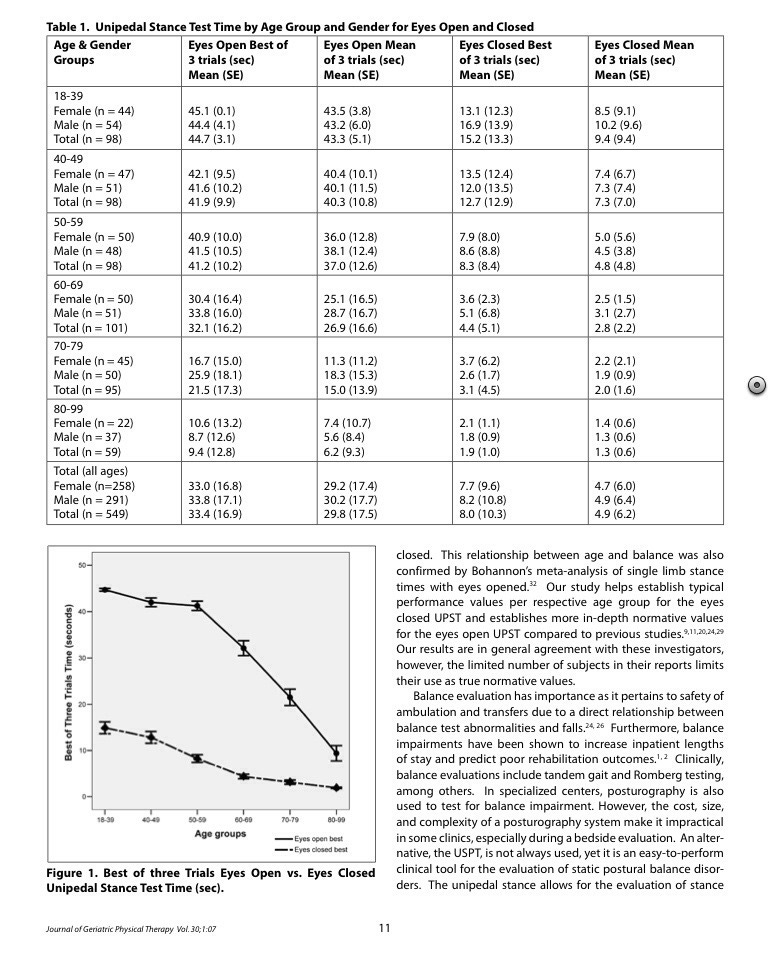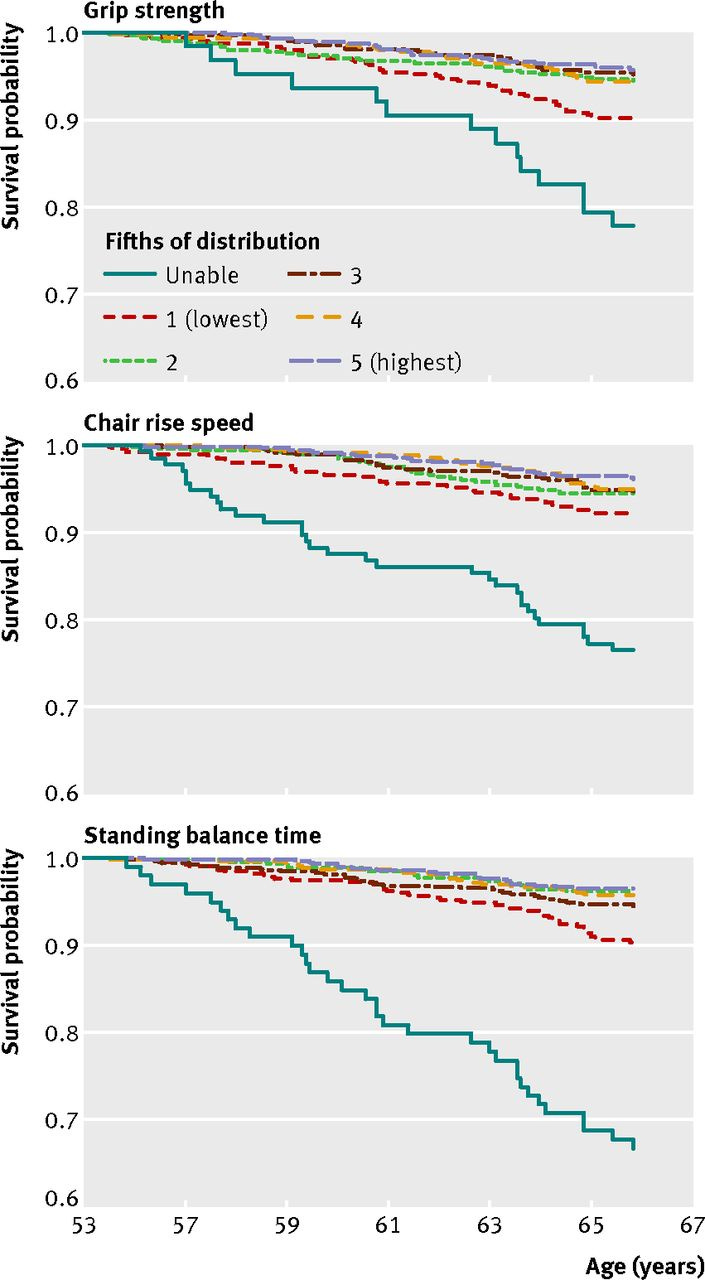Personal Science Week - 10 Nov 2022
How good is your balance, simple mortality tests, using Twitter, and more
This is a weekly summary, published each Thursday, of techniques and ideas we’ve found helpful for people interested in Personal Science, using science for personal reasons rather than professional ones.
Test your sense of balance
Much of self-measurement requires an understanding of the range of acceptable values. Without knowing the comparable context, it’s hard to tell whether a given number is “good” or “bad”.
This chart, from a 2009 study by researchers at Walter Reed Medical Hospital, shows how long you should be able to stand on one foot, either with eyes open or closed.
Cross your arms first, and start the timer as soon as your foot leaves the floor. Stop when you can no longer safely remain on one foot.

See more details at the 2014 blog post on Posture and Pain. Also see 1 Sept 2022 Personal Science Week for a similar chart for pushups by age.
Other Mortality Tests
Balance testing is one of three simple tests that a 2014 British study found were good predictors of all-cause mortality. Grip strength is another one: how much power is in your wrist? And chair rise time: how long does it take you to go from a sitting position to standing and back ten times?

A similar test measures your ability to sit and rise from the floor. If you can rise from the floor without using your hands, you are highly likely to survive at least another ten years. People who can’t get up without pulling themselves up with one or two hands have significantly lower survival rates.
These simple tests are often as good or better at predicting future health than fancy and expensive lab tests. It’s a reminder that Personal Scientists should focus on results, not necessarily any special technology.
Using Twitter
Online social media platforms have revolutionized the way Personal Scientists gather and exchange information, and I’ve found no platform better for this than Twitter. Dedicated websites like Quantified Self Forum, Facebook groups like the Seth Roberts Community, and the comments section of various blogs are great ways to interact with other Personal Science-minded people, but all of these sites presuppose their users already have a level of interest in the subject. They are less useful for finding or interacting with ideas or people who don’t already share your interests. Often the best ideas come from pure serendipity — happening to overhear a discussion that you didn’t think to consider yourself.
Twitter’s utility was severely limited until recently due to their censorship policies, when an obscure group of internal moderators could arbitrarily decide who or what constituted legitimate scientific discussion. Like all censorship, it was done in the name of “safety”, presumably to prevent the wrong people from spreading “incorrect” ideas. And as always, censorship supporters arrogantly believe themselves to be immune from that same “misinformation”. This elitist idea assumes that some of us are able to judge which experts are correct — after all, we’re smarter and better educated — and that civic responsibility requires our paternalism to protect the dumb and gullible.
Ironically, many people afraid of Twitter’s new free speech policies want to abandon Twitter for platforms (like Mastadon or Substack) that provide even less moderation. I don’t mind other platforms — from the perspective of a Personal Scientist, it’s always better to have more ideas, more voices — but let me make up my own mind on whether to trust something.
Twitter already contains two powerful tools for the Personal Scientist concerned about disinformation: Follow only those accounts you like, and block those you don’t. That’s it. If you are a responsible, curious person, you have all the tools needed to successfully navigate Twitter.
If you’re looking for high-quality accounts to follow, start with the Personal Science list, our curated collection of about 150 accounts that have proven to be useful sources of information for Personal Scientists.
About Personal Science
Personal Science uses science for personal reasons (understand something for yourself) rather than professional ones (it’s your job). Because so many personal issues tend to be health-related, many Personal Science endeavors tend to focus on optimization related to the human body. That’s one reason you’ll see an emphasis on self-tracking and measurement, whether through a fitness tracking device, a medical sampling kit, or even through simple note-taking.
But just as medical science is only one aspect of science, we can use the principles of science for much more than the study of personal health. Personal Scientists can ask questions about the world in general, in both what we call “physical” sciences like astronomy or physics and “social” sciences like linguistics or politics.
Subscribe to this newsletter to follow along our journey as we learn how to be scientists.


